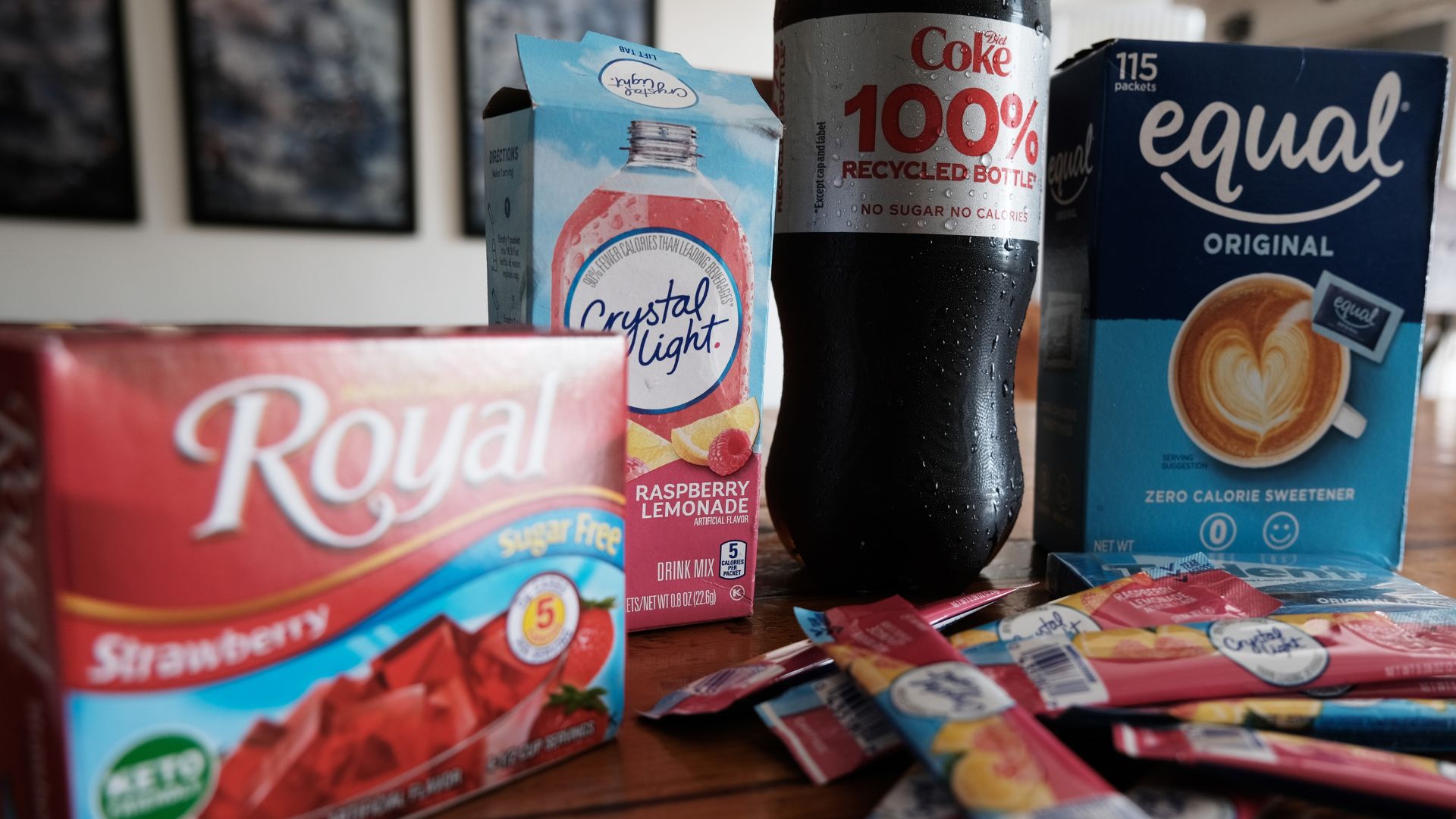
No, the artificial sweetener aspartame is not a possible carcinogen to humans, the U.S. Food and Drug Administration (FDA) said Friday (July 14).
The regulator’s statement came on the heels of a ruling issued by an arm of the World Health Organization (WHO), which classified the ubiquitous sweetener as possibly cancer-causing.
The WHO agency, called the International Agency for Research on Cancer (IARC), made its call based on a handful of studies in humans, mice and rats, as well as cell-based studies, which the agency says link aspartame to cancer. Each line of evidence was “limited,” meaning the IARC couldn’t confidently rule out the possibility that the results were skewed by “chance, bias, or confounding.” Having also reviewed the data, the FDA flagged “significant shortcomings” in the studies on which the IARC relied, according to its statement.
“Aspartame is one of the most studied food additives in the human food supply,” the FDA statement continues. “FDA scientists do not have safety concerns when aspartame is used under the approved conditions,” meaning when people adhere to the established safe consumption limit of no more than 40 milligrams of aspartame per 2.2 pounds (1 kilogram) of body weight per day. (To exceed that daily limit, a 150-pound (68 kilograms) person would need to down more than a dozen cans of diet soda.)
So what gives? What prompted the IARC to make this contentious call?
Related: Is Diet Coke bad for you?
In an exclusive published two weeks ago, Reuters reported that the IARC was planning to add aspartame to its list of possible carcinogens. Now, with the publication of a new report in the journal The Lancet Oncology, the IARC has made its declaration official, and aspartame is now listed among hundreds of other possible carcinogens — which include aloe vera leaf extract, “traditional Asian” pickled vegetables and the radio-frequency electromagnetic fields associated with cellphones.
The IARC’s controversial carcinogen ranking system has long been criticized as misleading and confusing. In the case of aspartame, the IARC placed the sweetener in group 2B, the “possible” carcinogens, largely based on three observational human studies that explored potential links between cancer and drinking artificially sweetened beverages, which served as a proxy for aspartame exposure.
One study conducted in Europe linked artificially sweetened soft drinks to a heightened risk of hepatocellular carcinoma, a type of liver cancer. Two U.S. studies found a similar increase in liver cancer risk linked to artificially sweetened beverages, although one of the two only observed this effect in people with diabetes.
The IARC combined this human data with rodent studies that linked aspartame to both malignant and benign tumors in mice and rats, but they noted weaknesses in the design of the animal studies. They also noted limited evidence from lab dish studies that suggest aspartame “exhibits key characteristics of carcinogens.”
Taken altogether, the evidence of carcinogenicity isn’t very strong.
This is the first time the IARC has evaluated aspartame, but another arm of the WHO — the Joint WHO and Food and Agriculture Organization’s Expert Committee on Food Additives, or JECFA — has evaluated the sweetener several times and set an acceptable daily intake level. JECFA reviewed the data on aspartame at the same time as the IARC and has maintained that the established intake level is safe.
Crucially, “JECFA also considered the evidence on cancer risk, in animal and human studies, and concluded that the evidence of an association between aspartame consumption and cancer in humans is not convincing,” Dr. Moez Sanaa, the WHO’s head of the Standards and Scientific Advice on Food and Nutrition Unit, said in a statement.
In fact, JECFA “concluded that there was no convincing evidence from experimental animal or human data that aspartame has adverse effects after ingestion.” That’s partly because, during digestion, aspartame breaks down into metabolites that the body readily absorbs from other common foods, and thus no aspartame enters systemic circulation, the committee reported. The team also concluded that, based on various experimental studies, the sweetener doesn’t damage DNA and there isn’t evidence of another mechanism whereby eating aspartame could cause cancer.
In its evaluation, JECFA considered how much aspartame people actually consume in a day and “noted that even the high estimates of consumption levels in children and adults are considerably below” the established, safe threshold, according to a commentary published alongside the IARC’s report.
Along with the JECFA and the FDA, food safety regulators such as Health Canada and the European Food Safety Authority have also thoroughly evaluated aspartame in the past and maintain that the established daily intake levels are safe.
Stay connected with us on social media platform for instant update click here to join our Twitter, & Facebook
We are now on Telegram. Click here to join our channel (@TechiUpdate) and stay updated with the latest Technology headlines.
For all the latest For Top Stories News Click Here
